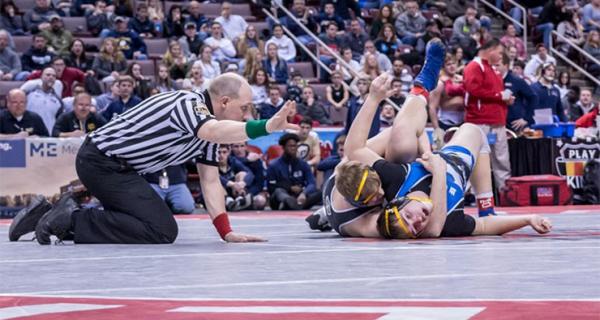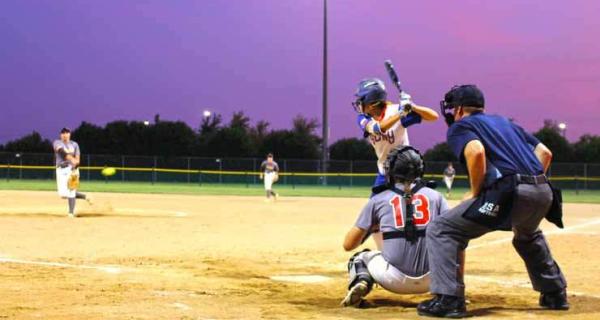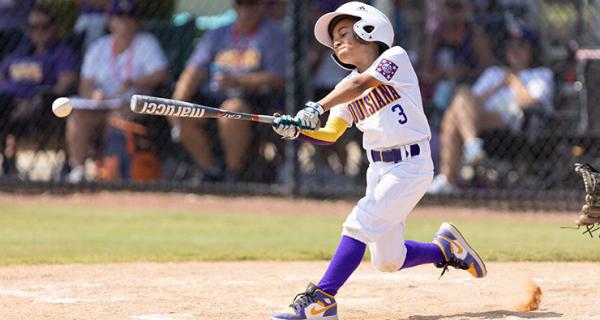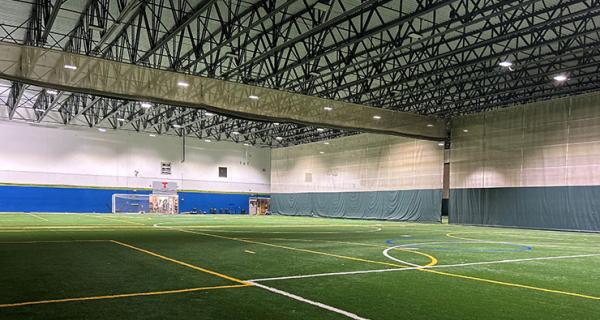8 Big Sports Tourism Trends for 2023
The sports tourism industry continues to trend up. We look at the forces behind the trends.

Tim Morgan, chief sports officer at the Chattanooga Sports Commission, says the fiber optic-powered destination didn’t experience a dip from 2020 to 2022 in hosting sporting events. On the other hand, Greg Fante, the newly minted CEO of the Louisville Sports Commission, acknowledges his hometown’s numbers aren’t back to pre-pandemic levels. Such is the uneven nature of the sports tourism industry’s recovery from COVID-19.
Predicting the future is unknown, but it appears safe to say the worst of the pandemic is over. Arenas and stadiums across the country are full again. Generally speaking, Americans are back to many of their old routines. The expectation is 2023 will be the closest to the ways things were, albeit with a few twists.
“We have seen an upward trend in event participation for our sport by around 10% to 20%,” reports Connor Shane, director of national events at USA Racquetball. “Our regional events are coming back online in full force this year after almost three years of seeing obstacles from COVID-19.”
What that means for sports tourism is a level playing field. Destinations are open for business and events are returning. The fact some of the industry’s most prominent leaders were in Qatar for the World Cup, prepping for this country’s turn in 2026, is a sign of how far we’ve come back.
The fact that it appears 2023 is the end of the tunnel the industry has been waiting for makes it a particularly pivotal year. Yes, travel sports appear to be back, but this is also a time to incorporate changes beyond the playing field. Time doesn’t stand still, and forward-thinking sports event professionals are looking for new opportunities to connect in meaningful ways with participants, parents and spectators.
Health and safety will always be a concern in sports, but perhaps the greater hurdle going forward are concerning economic headwinds. Finding coaches, refs and other staff necessary to keep tournaments running smoothly is not as easy as it used to be. Parents have proved they will put their children’s activities first, but they could face tough choices as inflation continues to raise prices.
Fante, a fourth-generation Louisvillian, stayed close to home professionals because of the positive impacts events have on his community.
“Sports matter because they promote active lifestyles, encourage personal growth and development, and create a sense of community,” he says. Or more succinctly, “Sports bring together,” he adds.
His comments come at an inflexion point for society, which appears split on many cultural issues. Sports has always been at the forefront of change and this era will not be different.
Here, we explore the trends sure to affect sports tourism in 2023 (and beyond) and how the industry is adapting to the needs of its base.
DIVERSITY
Good luck finding a hotter topic, especially given how far-ranging DEI initiatives have come in recent years. Last year, US Quidditch and Major League Quidditch teamed up to rebrand their sport to Quadball in an effort to distance themselves from Harry Potter author J.K. Rowling’s controversial comments about transsexuals. Questions about LGBTQ athletes participating in certain competitions are now political.
USA Fencing CEO Phil Andrews took the extraordinary step to share this LinkedIn post as the NGB’s response to human rights issues: “Beginning with the 2023-24 national tournament season and beyond, we'll give preference when selecting host cities for national tournaments to states without laws that harm members of LGBTQ communities as well as states that do not have laws undermining the reproductive health of women.”
Fante describes Louisville’s current inclusion efforts as “intentional,” a term many organizations would likely say about their initiatives. In the case of the Louisville Sports Commission, key actions include adding a specific diversity statement to its mission overview. More tangibly, a partnership with the city’s Urban League led to a top-of-the-line indoor track built at the Norton Healthcare Sports & Learning Center, located mere blocks from where Muhammad Ali grew up—a traditionally underserved neighborhood.
“Fencing the Gap” is a new campaign USA Fencing implemented to extend its outreach to BIPOC (Black, Indigenous and people of color) youth, youth girls and youth with disabilities. Grants and scholarships ease financial burdens for athletes, coaches and clubs.
On the supplier side, the Greater Columbus Sports Commission launched its Diversity Apprenticeship Program to provide hands-on experience to people of color in the travel industry in hopes of encouraging a broader group of future professionals. “I’m really proud of this hospitality initiative in our community,” says Greater Columbus Sports Commission CEO Linda Logan, a trailblazer for women in sports tourism.
TECHNOLOGY
While it’s far harder to recreate sports events on a virtual platform than corporate meetings, the 2020 digital revolution opened new doors.
As “Gig City,” Chattanooga has been ahead of the game in this regard. The Tennessee destination was the first city in the Western Hemisphere to offer 1 gigabit-per-second fiber internet service to all of its residents and businesses in 2010 (it’s up to 25 gigabits-per-second service now). Morgan says this makes the area a natural for esports because of the bandwidth required for large-scale gaming events.
Its reputation for technical know-how expands with geofencing advertising employed for state championships, notes Morgan. Investments have also been made in the form of a state-of-the-art Jumbotron at Finley Stadium, home of the University of Tennessee at Chattanooga football team and Chattanooga FC, a professional Division 3 soccer team, as well as many youth sports events.
Despite the return of fans to the stands, livestreaming is as popular as ever. NFHS Network Vice President Mark Koski says out-of-state family members and friends make up much of the millions of viewers catching high school games online. Statistics show most of the audience watches in real time even though on-demand is available, a sign of how involved the viewers are in the action. NFHS is more than halfway to its goal of providing streaming capabilities to all of the country’s 19,500 high schools. The holdup appears to be athletic directors who remain afraid the high-tech option takes away from ticket sales that act as fundraisers.
Koski’s job is to educate using an impressive list of stats that their fears are unfounded. “It truly is for those who can’t make it to the games,” he says.
EMERGING SPORTS
By this time next year, pickleball may be disqualified from the list of trending sports. In many regards, it has hit the big time. Tom Brady, LeBron James and Kim Clijsters are among professional athletes investing in teams.
Pickleball events are a big deal in cities ranging from Atlantic City to Kissimmee, Florida, to Columbus, Ohio. Pickle & Chill in Columbus is among a growing number of specific pickleball facilities. Gulf Shores | Orange Beach Sports & Events in Alabama partnered to build a 12-court lighted pickleball facility at the Gulf Shores Sportsplex
Morgan sees plenty of pickleball in Chattanooga, too, but adds badminton and gravel races are also on his radar as gaining steam.
INTERNATIONAL EVENTS
It’s not a coincidence to see the flurry of activity regarding international events coming to U.S. cities. Fante, who helps welcome international crowds annually to the Kentucky Derby, says some of the red tape involved in bringing global events to the U.S. has been cut on both the domestic and international side. Noteworthy items from 2022 include:
- The World Athletics Championships had spanned the globe without stopping in this country until Eugene, Oregon, hosted the 2022 event.
- Birmingham, Alabama, welcomed The World Games, a spotlight for non-Olympic sports, in July 2022.
- The Maryland Cycling Classic got rolling on Labor Day weekend after back-to-back COVID-related cancellations in 2020 and 2021.
- Eleven U.S. destinations learned they will host World Cup games in 2026. First-timers include Seattle, Miami, Philadelphia, Atlanta, Houston and Kansas City.
- The U.S. was awarded the 2031 Men’s Rugby World Cup and 2033 Women’s Rugby World Cup, a first for both events.
“I think cities are getting smarter and there are more dollars available for cities to take some more risk,” says Fante, who is hoping to bring the Breeder’s Cup, a major international horse racing event, back to Louisville. “We’re understanding how we can raise funds and have funds to help host these kinds of events.”
Beyond the hotel rooms, Morgan says international events have the benefit of increasing a city and region’s international profile. Chattanooga, for instance, hosted the IRONMAN 70.3 World Championships, which not only spurred business to the city but to the entire state. The event also cemented Chattanooga’s reputation as an active, outdoors destination, he adds.
SITE SELECTION & RFPS
Sustainability and site selection go hand in hand these days. This goes beyond decreasing waste, which is always a top priority. Sports planners are showing a preference toward turf fields, particularly among sports played on rectangular fields, says Morgan. Organizers are growing wary of rain damaging fields to the point where events can’t go on, which becomes a higher priority as families free up vacation time and resources to travel to tournaments.
Morgan has also noticed a decreased demand for bid fees from rights holders.
He also says Airbnb remains a popular option for visiting athletes despite stay-to-play policies. The cost of renting a home is often cheaper than a single hotel room, Morgan notes.
“Sometimes, we are our own worst enemies,” Morgan says of high prices.
CONSOLIDATION
The events business has seen a retraction in the number of vendors and companies. If the economy turns south, more mergers will come. One company to watch is 3STEP Sports.
Founder and Chairman David Geaslen, former CEO of Scouts Inc. and as ESPN’s VP of High School Sports and Recruiting, is targeting established event brands and bringing them into the fold. Under the current model, the acquired organizations still run the events under the large umbrella. With the financial backing of core investors Fiume Capital and Juggernaut Capital, 3STEP has acquired 74 new brands in nine sports across 43 states over the course of the past three years. Hoop Group and Munciana Volleyball Club are among the most notable acquisitions. The company includes more than 2,500 events and 1,800 club teams.
BURNOUT IS REAL
The hospitality industry at large is still facing an uphill battle following the employee exodus of 2020-21. Help Wanted posters may as well be a universal sign for all events. The staff that did stay is often overworked and underpaid considering the extra tasks they are performing. Likewise, the constant adjustments make it almost impossible to make sure nothing falls through the cracks. Shane says the stress is noticeable.
“Many of our head coaches and state association board members have been transitioning in and out of officer positions. This trend is similar to our national coaching, as well as our federation operational staff. This is creating a tough situation as the biggest problem we will be facing with this turnover is the disappearance of intellectual capital and expertise that does not get cleanly passed down. I have faced several situations this year where we did not have any controlling officers in a program that had solid experience to meet their KPIs and we had to reinvent the wheel,” he says.
BIG NEWS AHEAD
Perhaps the best trend for sports tourism is there is no shortage of interest. A few items to watch for in 2023 include:
- The NCAA opens its portal for future championships. Las Vegas already won its first Final Four. Fante hopes indoor track events find their way to Louisville’s newish facility.
- FIFA is expected to reveal which North American destinations will host the later rounds of the 2026 World Cup. The grand prize—semifinals and finals—are in play for large venues with experience hosting major events. That bodes well for Los Angeles, Dallas, Atlanta and Houston, in particular.
- Sports ETA, the association composed primarily of sports commissions, is seeking a new CEO to take over for Al Kidd, who announced his retirement effective June 2023. Will a woman lead the organization for the first time?








